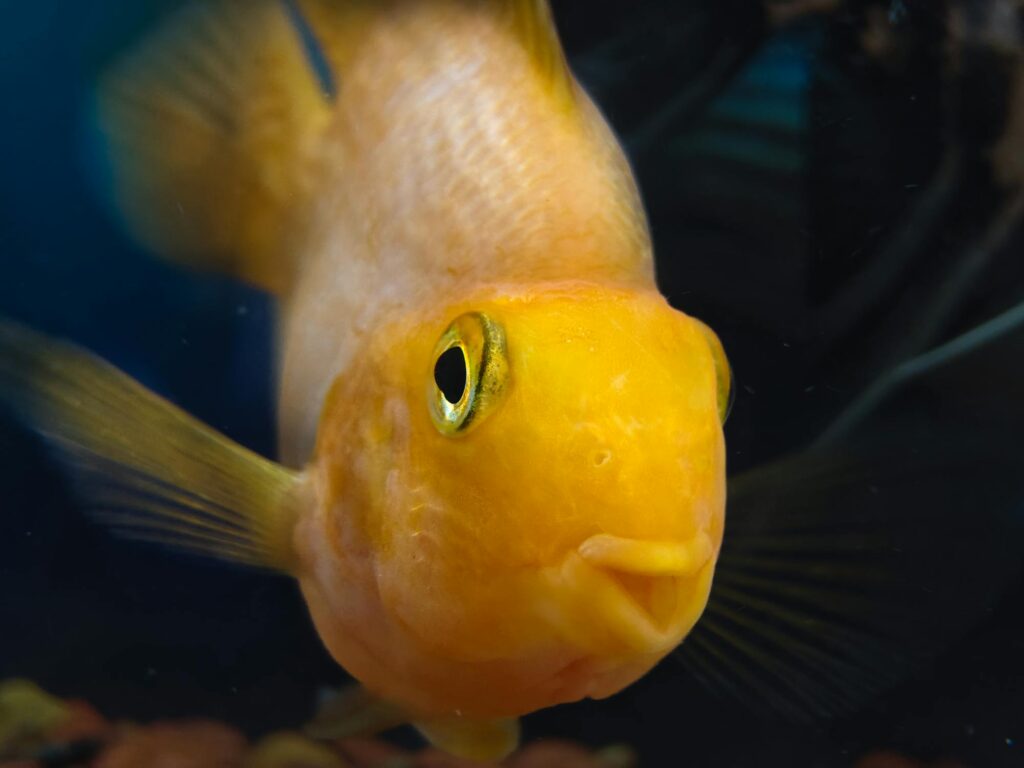
Sleep is one of the most essential biological functions for many animals, including humans. It helps the body restore itself, process information, and maintain proper health. But what about animals that don’t look like they sleep at all—like fish? Among the most common pet fish, goldfish often spark curiosity because they seem to be always awake and active. This leads to a popular question among pet owners and curious minds alike: Do goldfish sleep?
To answer this question, we need to understand what sleep actually is, how it functions in various species, and whether goldfish experience anything similar.
What Is Sleep?
Sleep is a naturally recurring state characterized by reduced responsiveness to external stimuli and decreased physical activity. In mammals and birds, it is often marked by closed eyes, a specific body posture, and changes in brain activity. The main purposes of sleep are to help with physical restoration, cognitive processing, and metabolic regulation.
However, sleep doesn’t look the same in every species. While humans and many animals have very clear signs of sleep, like closed eyelids and snoring, others don’t show such visible cues. Fish, for example, don’t have eyelids to close and rarely stop moving completely, which makes their sleep harder to observe. Yet, scientific studies suggest that many fish, including goldfish, do experience a sleep-like state that allows them to rest and recharge.
Goldfish Behavior and Rest
Goldfish, like other animals, do have rest periods. These periods are typically observed at night when the lights are off, and the environment is calm. During this time, goldfish become noticeably less active. They may hover near the bottom of the tank or remain still in the water, often with their fins moving slowly to maintain balance. Their color may also become duller while they rest, and their responsiveness to stimuli, such as tapping on the tank or changes in water movement, is significantly reduced.
Unlike humans, goldfish don’t lie down or seek out a “bed.” Their resting state is more about floating motionlessly and reducing energy use. This is their version of “sleep,” even though they don’t exhibit the brainwave changes seen in mammals. But it serves the same biological function—giving their bodies time to recover from activity.
How Goldfish Sleep
One of the most intriguing aspects of goldfish rest is the fact that they do it with their eyes wide open. This is because goldfish, like all fish, lack eyelids. This makes it easy to assume they are awake all the time, but that’s not the case. Despite their constantly open eyes, goldfish do enter a state of rest where their body functions slow down, and they become much less responsive.
Physically, goldfish will become still and often hover in a particular spot in the tank, sometimes close to decorations or near the tank’s floor. Their breathing and fin movement slow significantly. Behaviorally, they are far less reactive. During the day, a goldfish might dart quickly if startled; at night, it may take a moment longer to respond.
This rest is governed by a circadian rhythm—a natural, internal process that regulates the sleep-wake cycle and repeats roughly every 24 hours. In goldfish, this rhythm is influenced by environmental light, meaning they tend to rest more when it is dark and become active when lights are turned on. This light-dependent behavior is crucial in maintaining their internal biological clock.
Environment and Goldfish Sleep
A goldfish’s ability to rest properly is strongly influenced by its environment. One of the most important factors is the light/dark cycle. In the wild, fish are used to natural daylight patterns, so keeping a consistent lighting schedule in the tank helps mimic those natural conditions. Most experts recommend 10-12 hours of light followed by 12-14 hours of darkness to support a healthy sleep-wake cycle.
Aquarium conditions also play a significant role. Constant light, excessive noise, or frequent disturbances during the night can disrupt a goldfish’s rest. Similarly, poor water quality or lack of hiding places may increase stress levels, which can interfere with their ability to relax. Providing a quiet, stable environment with proper filtration, clean water, and places to hide can help ensure that goldfish get the rest they need.
Some aquarists even use tank covers or blackout curtains during nighttime hours to make sure their fish are not exposed to ambient room lighting. Simple adjustments like these can make a noticeable difference in the behavior and health of goldfish.
Common Misconceptions
A common myth is that fish never sleep because they don’t close their eyes. This misunderstanding stems from observing fish constantly swimming or floating in their tanks. Since fish don’t exhibit the same kind of sleep behaviors as humans—like closing their eyes or lying down—it’s easy to assume they’re always awake.
Another misconception is that fish must keep swimming to stay alive. While this is true for some species like certain sharks that need to swim to push water over their gills, goldfish are not among them. Goldfish can remain stationary and still breathe, which allows them to rest without any movement.
There’s also the idea that sleep must involve a completely inactive brain. In fact, even in mammals, parts of the brain remain active during sleep. For goldfish, their version of sleep may not involve complex brainwaves, but it still serves essential functions for recovery and well-being.
Conclusion
In conclusion, goldfish do sleep, although not in the way we typically think about sleep. They experience a rest-like state marked by reduced activity, lowered responsiveness, and slower bodily functions. This resting phase usually occurs during the night and is regulated by a natural circadian rhythm influenced by light exposure.
Understanding the sleep behavior of goldfish is important not only for satisfying curiosity but also for proper pet care. Providing a suitable environment that mimics their natural light patterns, maintaining clean water, and minimizing disturbances can ensure that goldfish get the rest they need to stay healthy.